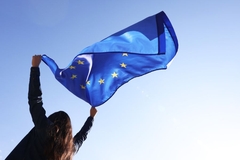L'Oréal Groupe invests €50M to decarbonize suppliers’ value chain

L’Oréal Groupe is committing an initial investment of €50 million (US$52.8 million) to a fund that enables suppliers to accelerate the decarbonization of their most prominent industrial projects.
The cosmetics company says the money will go toward delivering on Scope 3 commitments to reduce indirect carbon emissions by enabling its extended value chain, particularly for small and medium-sized enterprises (SMEs), to more easily access financing.
“L’Oréal Groupe is committed to addressing environmental, climate and decarbonization challenges in line with our net-zero ambition,” says Christophe Bauble, CFO of L’Oréal Groupe.
“Supporting the financing needs of our suppliers, especially SMEs whose access to financing can be limited, is a major lever to accelerate the decarbonization of our value chain. We are delighted to contribute financially, and through the time invested by our teams in this leading and pioneering initiative, we invite other companies to join us in this endeavor.”
Fund for the planet
The Solstice fund, in collaboration with European credit specialist Chenavari Investment Managers, allows industrial suppliers, including L’Oréal partners, to access financial solutions to help them implement decarbonization initiatives.
The CEO of Chenavari, Loïc Fery, explains that decarbonizing industrial processes is a “complex challenge” that requires significant capital deployment to finance the transition to low-carbon processes and achieve reductions in greenhouse gas emissions at scale.
“By partnering with L’Oréal Groupe to create the Solstice fund, we are helping bridge the climate finance gap and helping create future value streams enabled by new and sustainable low-carbon practices,” says Fery.
 L’Oréal looks to become more sustinable.The debut fund includes projects in industrial processes and supply chains, clean energy and clean transportation. It is open to further investment by institutional investors, including other corporations who, like L’Oreal Groupe, aim to support the decarbonization of their ecosystems.
L’Oréal looks to become more sustinable.The debut fund includes projects in industrial processes and supply chains, clean energy and clean transportation. It is open to further investment by institutional investors, including other corporations who, like L’Oreal Groupe, aim to support the decarbonization of their ecosystems.
L’Oréal Groupe says they are “addressing a significant gap in the market.”
“L’Oréal Groupe relies on a vast ecosystem of over 35,000 partner companies actively working toward a common objective: the fight against climate change,” says Antoine Vanlaeys, COO of L’Oréal Groupe.
“We are implementing innovative solutions and engaging our suppliers to move forward. I am convinced that creating this fund will allow us to collectively accelerate the transition toward a more sustainable and responsible model.”
Sustainability surge
Beauty companies have been searching for solutions to reduce their emissions as the push for sustainability comes from all sides of the aisle.
To aid in this endeavor, the European Commission is hosting a free, one-hour webinar on December 11, “When Beauty Meets Green: The EU Ecolabel for Cosmetic Products,” to help companies adopt the certification and answer questions.
The event targets beauty industry professionals and will discuss current EU regulations affecting the personal care industry, consumer preferences for eco-friendly cosmetics and the EU Ecolabel’s standards for certifying sustainable products.
Innova Market Insights data indicates sustainable claims in beauty product launches increased by 21% from July 2019 to June 2024. Europe accounted for over half (52%) of these launches, followed by Asia (22%) and North America (13%). L’Oréal invests in decarbonizing its supply chain.
L’Oréal invests in decarbonizing its supply chain.
The market researcher adds that face and body cosmetics (34%) are leading the way in sustainable beauty offerings, with skin care (16%), hair care (14%) and lip cosmetics (10%) on the rise. Sustainable eye cosmetics are on a growth path with 33% average annual growth (CAGR, Jul 2019 to Jun 2024).
Personal Care Insights recently spoke to Dow and Univar Solutions about innovating toward carbon neutrality. Yet, research finds inconsistent global standards challenging unified progress.
A Dow representative told us that achieving zero emissions and moving to a circular economy requires significant investments and resources. Meanwhile, Univar Solutions said not having a singular definition of sustainability creates challenges and opportunities to ensure the suitable raw materials and ingredients are provided to markets.













